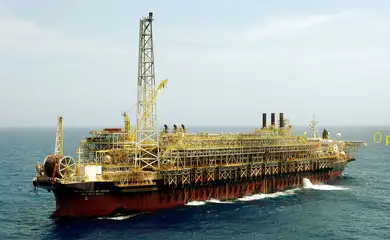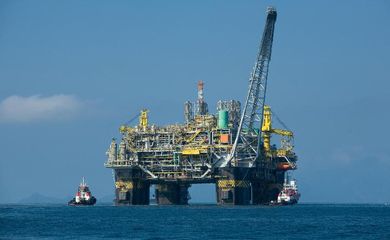Petrobras downplays risk of oil exploration in Equatorial Margin

Urged by Amapá Senator Lucas Barreto to push for oil exploration in the Brazilian Equatorial Margin, Petrobras CEO Jean Paul Prates Wednesday (Aug. 16) said the process is still in its early stages and downplayed the possible environmental risks of oil production there. Should the environmental license be approved, he argued, it could take up to eight years for production to actually begin.

The head of the state-run oil giant took part in a public hearing in the Senate. On the occasion, he claimed there had been an exaggeration around the organization’s request to drill exploratory wells near the coast of Amapá state, as if the company were going to inaugurate oil production in the area.
“It already exists. Oil flows down the Amazon river to reach the refinery of Manaus everyday,” he said. The Polo de Urucu, for instance, has been exploring oil in the Amazon since 1986.
Of all the forms of oil exploration in the region, he noted, this would be the least risky. “Even [if] production is carried out systematically, it has the lowest chances of causing damage and it’s the best opportunity to generate government revenue and income for the local population,” he said, pledging “not to spare efforts” in finding out if there is commercially viable oil in the Brazilian Equatorial Margin—the region from the coast of Amapá to Rio Grande do Norte.
Prates also added there have never been any leaks in wells drilled by the company, but pondered that this type of occurrence is possible. “It’s subject to leakage. It happens in all companies. Petrobras has a low record of accidents and oil leaks,” he went on to remark.
However, he pointed out that the region Petrobras plans to drill in is 170 km off the coast of Amapá and 580 km off the mouth of the Amazon river. “It says in the license: The possibility of an oil leak from a production system—not a drilling system—hitting the coast is extremely remote, because the sea currents, winds, and everything else would lead it to Barbados. That doesn’t mean we don’t have to be careful, of course,” he concluded.
Exploration and production
Prates differentiated the environmental license requested by Petrobras—which aims to find out whether there is oil in the region—from a future license to produce oil. If oil is discovered, an analysis will have to be conducted to find out whether it is commercially viable.
“The discovery may not be commercially advantageous. An economic assessment is performed in the process,” said Prates.
Energy transition
Prates postulated that the energy transition should be financed through oil exploration. The shift to an economy that burns less fossil fuels, he declared, will be slow and should take around 50 years. In this regard, the CEO of Petrobras disagreed with the international Just Stop Oil movement, a group that calls for a ban on all new oil exploration tenders in order to make the revamp faster.
In Prates’s view, energy transition does not mean energy rupture. He criticized the attempt to ban oil exploration in certain areas to speed up the change. “The energy transition for oil companies is an ever-changing organism. You have to invest in oil if you want to afford the energy transition,” he affirmed.



